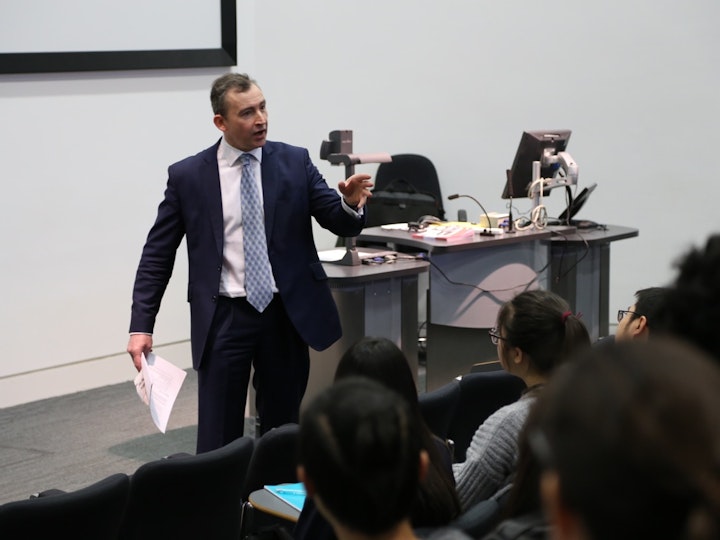Industry Insights: The Changing Face of Banking -10 Years After the Storm
As always, student members from the University of Reading Finance Society have provided a review of the most recent Industry Insights event:

The 6th Industry Insights event was presented by Tim Skeet and organised by the ICMA Centre in partnership with the University of Reading Finance Society. During an interactive session, he discussed the banking situation ten years after the crisis and developed his thoughts on Sino-European financial relationships. He also gave us an overview of his career while explaining the constant evolution of banking and financial services.
Mr. Tim Skeet is Head of Western European Origination at Bank of China and works with ICMA. He undertook his studies at Cambridge University and worked for multiple financial services firms such as Morgan Stanley, RBS or Barclays.
As an introduction to the main subject, the current financial situation after the 2008 crisis, he asked the question: “Are we safe now?”.
To provide an explanation to this question, he analysed what happened 10 years ago on the 15th of September 2008 and summarized three points.
Firstly, the industry was poorly managed by some bankers who did not behave well because of profit orientation or political reasons.
Second was that the industry was poorly regulated. Back in 2008, regulators were not directly involved within the banking industry and only overviewed from outside, which blurred their vision of banking systems and conducted a lack of regulations.
Finally, he explained that the industry was poorly understood and that this led to an insufficiency of critical thinking over banking methods.
But have we learnt the lesson? Nowadays, there is much more regulation compared to 2008 and many improvements have contributed to this. Banks are now the most regulated institutions, but the fact that regulators often are backward looking, a burning question on how to make regulations more proactive is yet to be answered.
“All the regulations we have today are to solve the problems we had 10 years ago”.
Mr. Skeet argued that the risk is still present, despite big banks being well regulated, as potential future problems will come from “shadow banks” such as big asset and investment managers which aren’t forced to comply to these extensive regulations.
To conclude the talk, Mr. Skeet explained the importance of always re-investigating what we learn because the banking and finance Industry is continuously changing.
During the Q&A session, he explained the importance of debt in the economy by taking the example of the current situation of Italy and the potential issues like these have on creating new crises. He also talked about how technology and innovation in the banking industry will help banks improve their operations.
The ICMA Centre and the UoR Finance Society thank Mr. Skeet for a really insightful talk!
Laurent Archaud.

